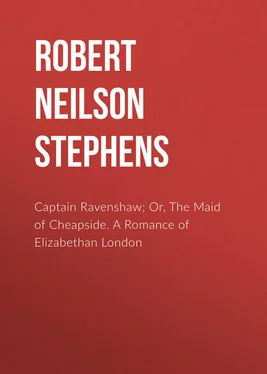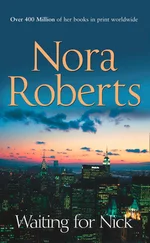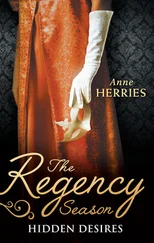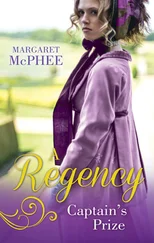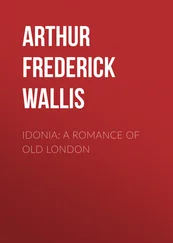Robert Stephens - Captain Ravenshaw; Or, The Maid of Cheapside. A Romance of Elizabethan London
Здесь есть возможность читать онлайн «Robert Stephens - Captain Ravenshaw; Or, The Maid of Cheapside. A Romance of Elizabethan London» — ознакомительный отрывок электронной книги совершенно бесплатно, а после прочтения отрывка купить полную версию. В некоторых случаях можно слушать аудио, скачать через торрент в формате fb2 и присутствует краткое содержание. Жанр: foreign_antique, foreign_prose, Альтернативная история, на английском языке. Описание произведения, (предисловие) а так же отзывы посетителей доступны на портале библиотеки ЛибКат.
- Название:Captain Ravenshaw; Or, The Maid of Cheapside. A Romance of Elizabethan London
- Автор:
- Жанр:
- Год:неизвестен
- ISBN:нет данных
- Рейтинг книги:5 / 5. Голосов: 1
-
Избранное:Добавить в избранное
- Отзывы:
-
Ваша оценка:
- 100
- 1
- 2
- 3
- 4
- 5
Captain Ravenshaw; Or, The Maid of Cheapside. A Romance of Elizabethan London: краткое содержание, описание и аннотация
Предлагаем к чтению аннотацию, описание, краткое содержание или предисловие (зависит от того, что написал сам автор книги «Captain Ravenshaw; Or, The Maid of Cheapside. A Romance of Elizabethan London»). Если вы не нашли необходимую информацию о книге — напишите в комментариях, мы постараемся отыскать её.
Captain Ravenshaw; Or, The Maid of Cheapside. A Romance of Elizabethan London — читать онлайн ознакомительный отрывок
Ниже представлен текст книги, разбитый по страницам. Система сохранения места последней прочитанной страницы, позволяет с удобством читать онлайн бесплатно книгу «Captain Ravenshaw; Or, The Maid of Cheapside. A Romance of Elizabethan London», без необходимости каждый раз заново искать на чём Вы остановились. Поставьте закладку, и сможете в любой момент перейти на страницу, на которой закончили чтение.
Интервал:
Закладка:
Robert Neilson Stephens
Captain Ravenshaw / Or The Maid of Cheapside. A Romance of Elizabethan London
"Hang him, swaggering rascal!.. He a captain!.. He lives upon mouldy stewed prunes and dried cakes."
– King Henry IV., Part II.PREFACE
Here is offered mere story, the sort of thing Mr. Howells cannot tolerate. He will have none of us and our works, poor "neo-romanticists" that we are. Curiously enough, we neo-romanticists, or most of us, will always gratefully have him; of his works we cannot have too many; one of us, I know, has walked miles to get the magazine containing the latest instalment of his latest serial. This looks as if we were more liberal than he. He would, for the most part, prohibit fiction from being else than the record of the passing moment; it should reflect only ourselves and our own little tediousnesses; he would hang the chamber with mirrors, and taboo all pictures; or if he admitted pictures they should depict this hour's actualities alone, there should be no figures in costume.
But who shall decide in these matters what is to be and what is not to be? Who shall deny that all kinds of fiction have equal right to exist? Who shall dictate our choice of theme, or place, or time? Who shall forbid us in our faltering way to imagine forth the past if we like? The dead past, say you? As dead as yesterday afternoon, no more. "Where's he that died o' Wednesday?" As dead as the Queen of Sheba. But on the pages of Sienkiewicz, for example, certain little matters of Nero's time seem no more dead than last week's divorce trial in the columns of those realists, the newspaper reporters. All that is not immediately before our eyes, whether dead or distant, can be visualised only by imagination informed by description, and a small transaction in the reign of Elizabeth can be made as sensible to the mind's eye as a domestic scene between Mr. and Mrs. Jones in the administration of McKinley. But how can one describe authentically what one can never have seen? You may propound that question to the realists; they are often doing it, or else they see extraordinary things now and then.
But, now that I remember it, Mr. Howells is not really illiberal. He has, upon occasion, admitted a tolerance – nay, an admiration – for "genuine romance." But what is genuine romance? Is psychological romance, for instance, more "genuine" than melodramatic romance? Are we not all – we "neo-romanticists" – aiming at genuine romance in some kind? Shall there not be many misses to a hit? many inconsiderable achievements to a masterpiece? And we suffer under limitations which the great romancers had not to observe. We must be watchful against anachronisms, against many liberties in style and matter which the esteemed Sir Walter, for instance, might take – and did take – without stint. One's fancy was less restrained, in his day. One cannot, as he did, bring Shakespeare to Greenwich palace before the festivities at Kenilworth occurred; or let a shopman recommend a pair of spectacles to a doctor of divinity with the information that the king, having tried them on, had pronounced them fit for a bishop; or make the divine buy them with the cheerful remark that a certain reverend brother's advancing age gives hopes of an early promotion. Fancy such an exchange of jocularity between a shop "assistant" in Piccadilly and Doctor Ingram, while the late Doctor Creighton was Bishop of London! Flow of fancy is easier upon such terms; or, when one may even, as the great Dumas did, be so free of care for details as to have the same character in two places at the same time.
It is not meant to be implied that Mr. Howells is thought to consider the work of Scott or Dumas genuine romance. If he has anywhere mentioned an example of what he takes to be true romance, I have missed that mention. I should like to read his definition (perhaps he has published one which I have not seen) of genuine romance. But I would rather he taught us by example than by precept. What a fine romance he could write if he chose!
But as for us less-gifted ones, the "neo-romanticists," shackled as Scott and Dumas were not, we must work a while under the new conditions, the new checks upon our imagination, ere we shall get a masterpiece. Meanwhile none of us yields to Mr. Howells in admiration of a true romance, and none of us would be sorry to lay down the pen, or shut up the typewriter, some fine afternoon and find it achieved. But until then may we not have indifferent romances, just as we have indifferent realistic novels? Why not, pray? Again, shall one man, one group, one school, decide what shall be and what shall not? "Dost thou think, because thou art virtuous, there shall be no more cakes and ale?"
Now, of merits which mere story may possess, and usually does possess in measure greater than the other sort of thing does, one is – construction. Wherefore, the opponents of this sort of thing belittle that merit. But it is a prime merit, nevertheless. Is not the first thing for praise, in a picture, its composition? in a building, its main design? in a group of statuary, its general effect? So, too, in a work of fiction. "Real life does not contrive so curiously," says Professor Saintsbury. Precisely; if it did, what would be the good of fiction? Neither does nature contrive well-ordered squares of turf, with walks, flower-beds, hedge-rows, shrubbery, trees set with premeditation; shall we, on that account, make no gardens for ourselves? Who shall ordain that there be no well-constructed plots in fiction because life, seen in sections as small as a novel usually represents, is not well constructed? It is time somebody put in a word for plot. When all is said and done, the main thing in a story is the story.
Mr. Howells said, long ago, that the stories were all told. It is doubtful. But even if it were certain, what of it? Because there was an old tale of a king's wife whose lover lost the ring she gave him, whereupon the king, finding out, bade her wear it on a certain soon-coming occasion, and she was put to much concern to get it in time, was the world to go without the pleasure of D'Artagnan's mission for Anne of Austria? And what though Dumas himself had used the old situation of a real king imprisoned, and his "double" filling the throne in his place, were we to have no "Prisoner of Zenda?" Or even if the story of the man apparently wooing the handsome sister, while really loving the plain sister, had already been told, as it had, was Mr. Howells prohibited from making it twice told, in "Silas Lapham?"
Now, as to this little attempt at romance in a certain kind, I wish merely to say, for the benefit of those who turn over the first leaves of a novel in a bookstore or library before deciding whether to take or leave it, that it differs from the usual adventure-story in being concerned merely with private life and unimportant people. Though it has incidents enough, and perils enough, it deals neither with war nor with state affairs. It contains no royal person; not even a lord – nor a baronet, indeed, for baronets had not yet been invented at the period of the tale. The characters are every-day people of the London of the time, and the scenes in which they move are the street, the tavern, the citizen's house and garden, the shop, the river, the public resort, – such places as the ordinary reader would see if a miracle turned back time and transported him to London in the closing part of Elizabeth's reign. The atmosphere of that place and time, as one may find it best in the less known and more realistic comedies of Shakespeare's contemporaries, in prose narratives and anecdotes, and in the records left of actual transactions, strikes us of the twentieth century as a little strange, somewhat of a world which we can hardly take to be real.
Читать дальшеИнтервал:
Закладка:
Похожие книги на «Captain Ravenshaw; Or, The Maid of Cheapside. A Romance of Elizabethan London»
Представляем Вашему вниманию похожие книги на «Captain Ravenshaw; Or, The Maid of Cheapside. A Romance of Elizabethan London» списком для выбора. Мы отобрали схожую по названию и смыслу литературу в надежде предоставить читателям больше вариантов отыскать новые, интересные, ещё непрочитанные произведения.
Обсуждение, отзывы о книге «Captain Ravenshaw; Or, The Maid of Cheapside. A Romance of Elizabethan London» и просто собственные мнения читателей. Оставьте ваши комментарии, напишите, что Вы думаете о произведении, его смысле или главных героях. Укажите что конкретно понравилось, а что нет, и почему Вы так считаете.
